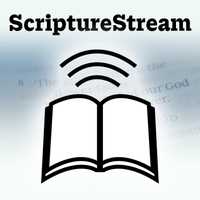- Lesson 5: Wisdom Psalms
- Purpose
- To teach and instruct; tell coming generations about God (Psalm 32:8; 49:3; 78:1,4)
- Calls to action in Psalms
- Psalm 37:8,27 – cease from anger and wrath; do not worry; depart from evil
- Psalm 112:9 – give freely to the poor
- Psalm 119:1 – be blameless; walk in the way of the Lord
- Psalm 119:9 – keep your way pure; walk according to God’s word
- Fearing God and keeping His commandments brings about blessings. Psalm 1:3; 73:24; 112:1
- Structure
- Wisdom psalms have a variety of structures, so we will look at the unique structure of Psalm 119.
- Psalm 119 is an acrostic poem. It is divided into 22 sections of 8 lines each. Each section is named for a letter of the Hebrew alphabet. Each line in that section starts with the same letter.
- Seven other psalms, Proverbs 31, Lamentations 1-4, and Nahum all contain at least partial acrostics.
- God’s law is referenced in nearly every verse of Psalm 119.
- Key features
- Phrasing is similar in many passages, including:
- Psalm 37:16 / Proverbs 15:16 – Better is … than …
- Psalm 128:1 / Proverbs 3:13 – How blessed is …
- Psalm 32:9 / Proverbs 25:8 – Do not … otherwise …
- Psalm 49:1 / Proverbs 22:17 – Hear this …
- All of these impart wisdom and try to show the importance and superiority of God’s way.
- Phrasing is similar in many passages, including:
- Example
- Psalm 73
- Psalm 73:1-9 – Complaint
- Psalm 73:10-14 – Lament
- Psalm 73:15-20 – Seeing the truth of the matter
- Psalm 73:21-24 – God guides me
- Psalm 73:25-28 – Rejoicing in a relationship with God
- Psalm 73
- Purpose
JS
April 09, 2014
For further study, see also:
Questions or comments? Join our Discord server for further study.
